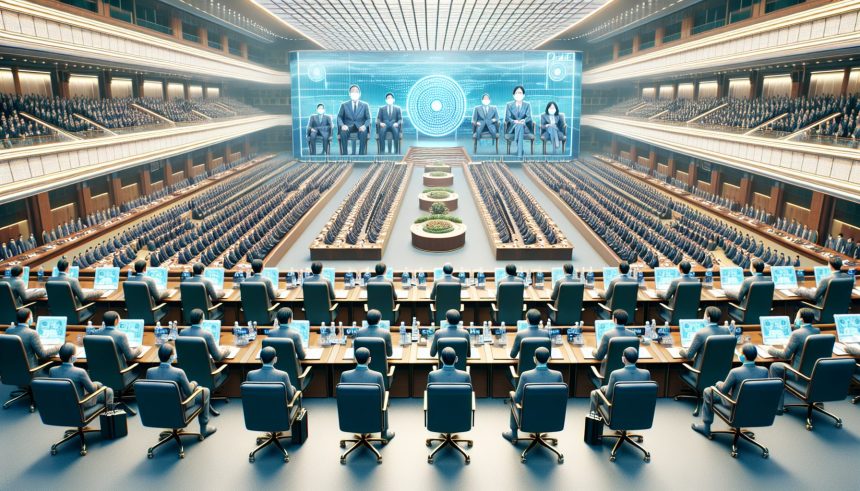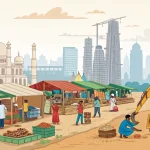The National People’s Congress, China’s principal political event, started again on Tuesday, undeterred by the prevailing pandemic. The event started with around 3,000 delegates congregating at the Great Hall in Beijing, a stark contrast to last year’s situation.
Economic plans, environmental discussions, and the trajectory of the world’s second-largest economy were among the hot topics discussed during the Congress. This was punctuated with a binge of renewed normalcy as the traditional banquet, and cultural shows, canceled last year due to the pandemic, were resumed.
However, the revised ‘normal’ in China is markedly different, with the country becoming more self-structured and compact under President Xi Jinping. This was underscored by mandatory government-supervised Covid tests for entrance to the Great Hall of the People, reflecting this new normal.
The increasing focus on developing China into a technologically advanced nation further amplifies Xi Jinping’s intent to regulate the private sector and boost domestic capabilities.
This year, the annual economic growth forecast, traditionally shared with media and analysts, was initially distributed only to delegates and diplomats. This created a public stir that magnified anticipation for the report’s public release. Critics claim the move aimed to control information, but authorities justified it as strategic with an analysis purpose.
The change signifies a break away from a 30-year tradition, with China’s Premier not being available for any media engagements post the legislative gathering. This unprecedented approach diverges from China’s long-standing methods in public communication.
The legislative session, nonetheless, remains a meticulous process involving leader updates and approval of new delegate policies. The first step usually involves a briefing on the legislative body’s main focus areas. This is followed by an announcement and approval of new policies, with each delegate provided with an official document for comprehension.
The evolving ‘normal’ in China’s political structure underscores the pandemic’s transformative influence. The recent developments highlight the administration’s adaptability in times of crisis. Amidst the health emergency, a shift in China’s political paradigm is unfolding, matching the ever-changing global dynamics.







